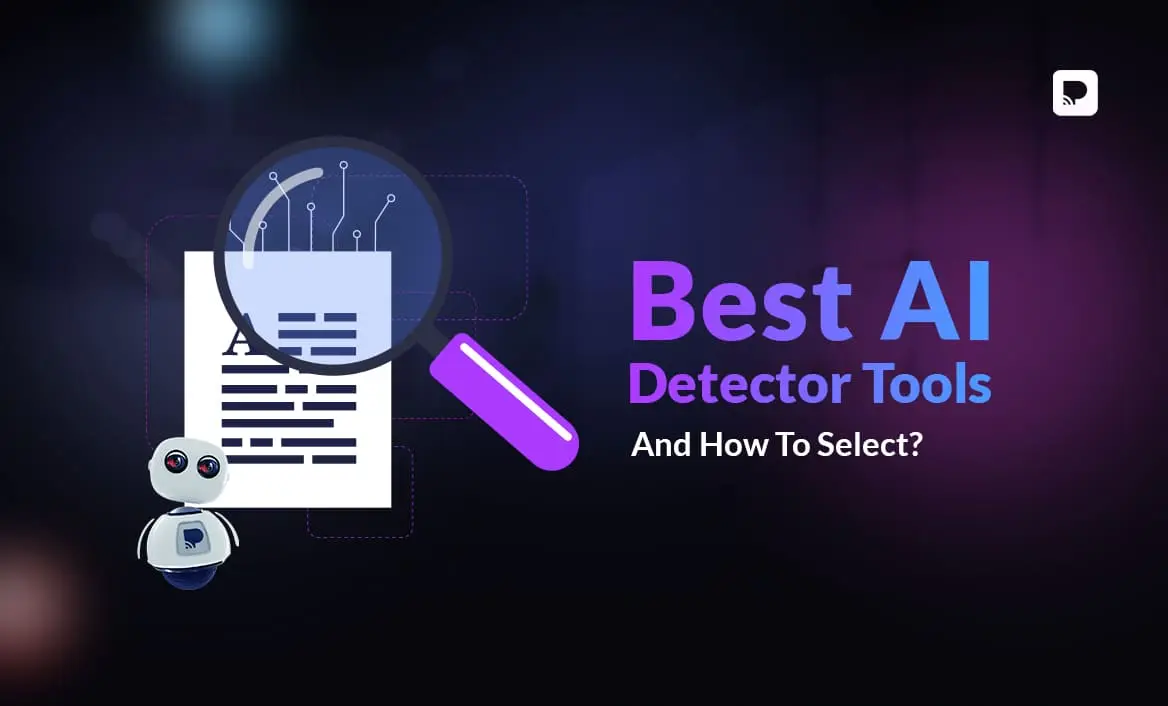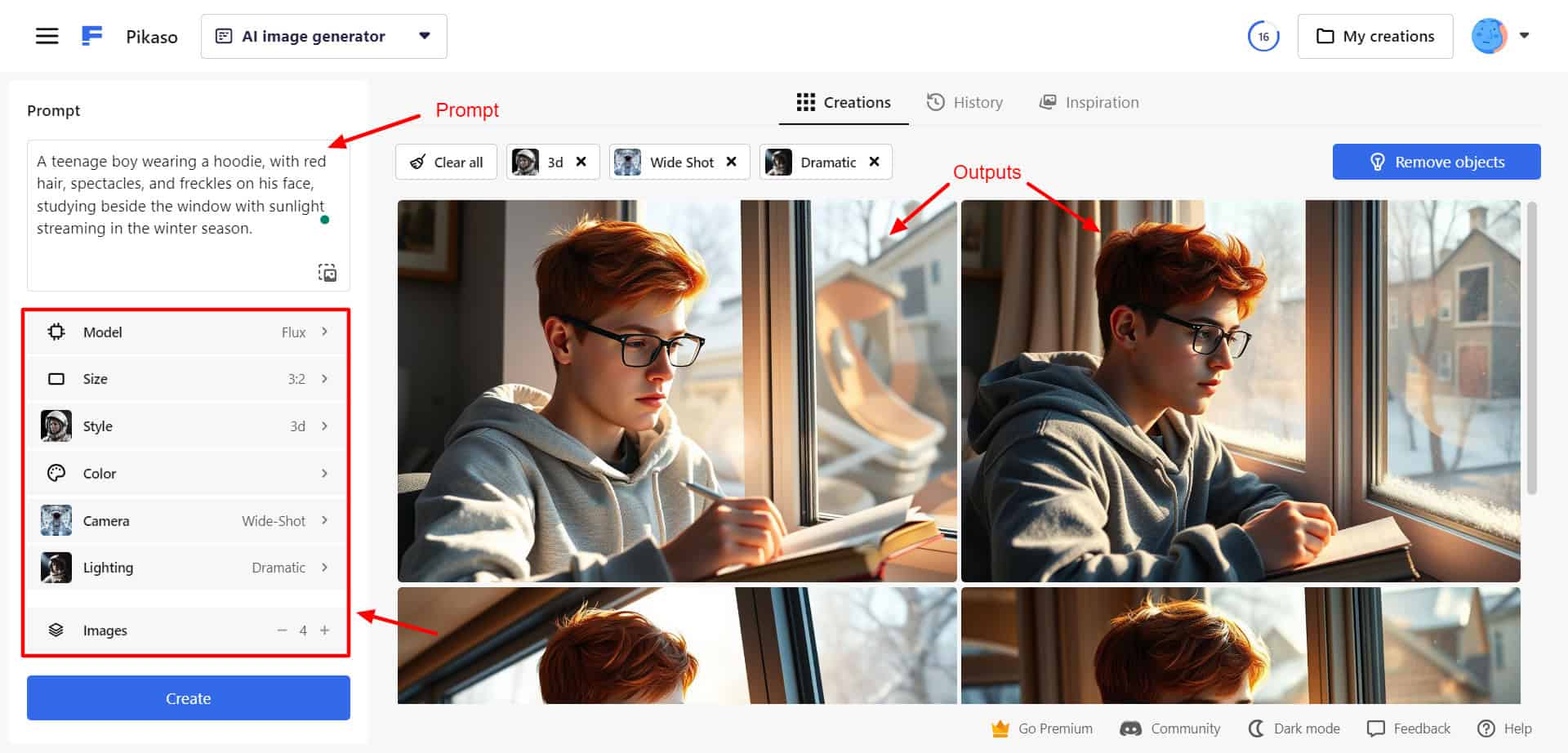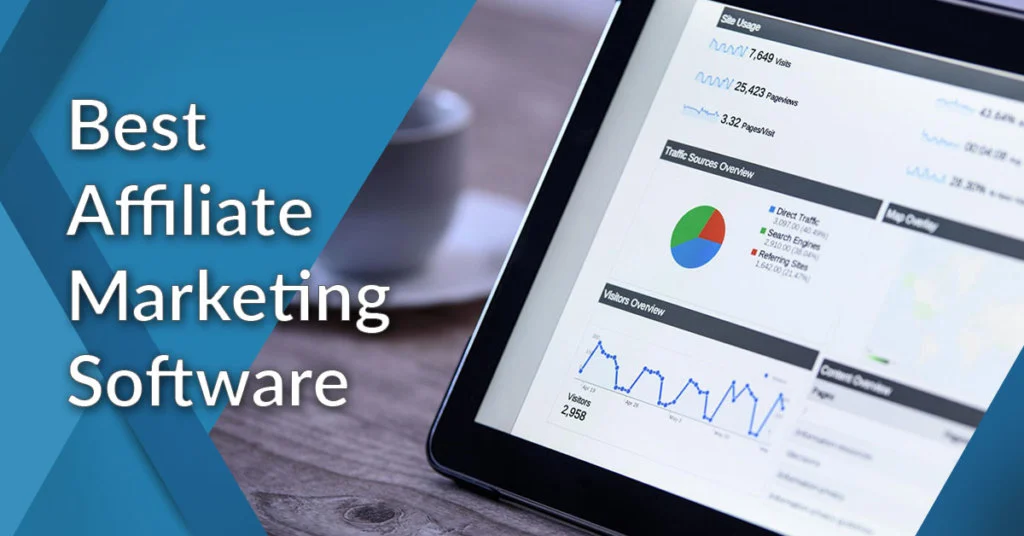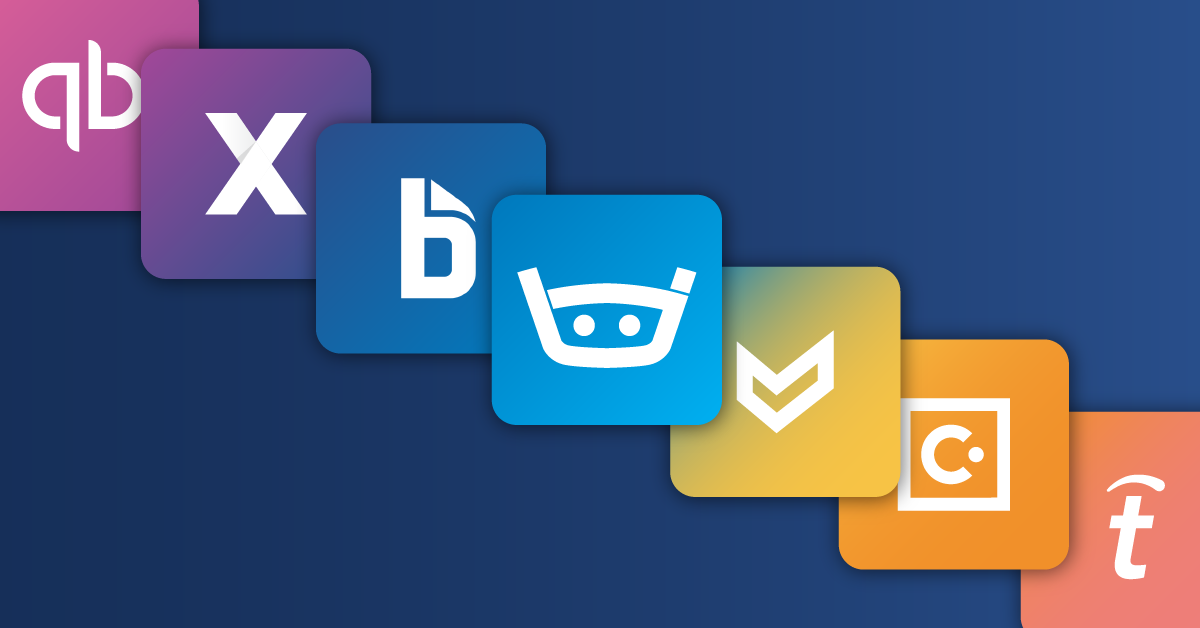10 Best Accounting Software for Airbnb: Airbnb hosting has become super popular and a great way for many people around the world to make some extra cash. But when you start letting guests into your home, you might run into some financial stuff that can get a bit tricky. So, it’s important to stay sharp and manage things well!
Managing different sources of income and keeping up with tax rules in different places can get pretty hectic. This guide will show you how accounting software can make these financial chores a lot easier. With cool automation features, instant updates, and a set of tax tools specifically for vacation rentals, you’ll find that handling your finances doesn’t have to be a headache.
In this article, we’re going to break down what accounting software is and why it’s super important for making money and growing your Airbnb business. We’ll talk about the unique issues you deal with as an Airbnb host, why special tools can really help, and we’ll also dive into 11 of the top software options out there right now.
No matter if you’re just starting out and trying to stick to a budget, or you’ve been doing this for a while and manage several properties, you’ll find some great tips and recommendations here to make your finances way easier to handle. Think of this guide as your go-to resource for getting your Airbnb money matters in line, boosting your profits, and helping your business grow sustainably.
What is Accounting Software, and Why Do Airbnb Hosts Need It?
Managing an Airbnb can be a bit of a hassle when it comes to keeping track of your finances. Doing it all by hand isn’t just boring; it’s also easy to mess up. Using specialized accounting software can help automate your recordkeeping, letting you spend more time making your guests happy and growing your business.
What is Accounting Software?
Accounting software is basically a type of digital tool that helps you keep track of your money. It lets you easily see how much you’re making, record what you spend, handle taxes, and create reports. These programs can manage all sorts of financial activities and give you a clear picture of your finances as they happen.
You usually have the option to pick from general software that works for different industries or specialized programs made just for vacation rental businesses. Here are some main features you can expect:
- Automating data entry and reconciliation really helps cut down on mistakes that people might make when doing it by hand.
- Customizable reporting dashboards that help you easily see how your finances are doing.
- Tax compliance tools help you whip up important tax documents without breaking a sweat.
- Connect easily with your bank and booking platforms.
This kind of automation really boosts accuracy and makes financial reporting quicker and easier. It helps make sure that every transaction gets recorded right as your business expands.
Financial Considerations for Airbnb Hosts
As an Airbnb host, it’s crucial to manage your finances closely. Consider the different ways for generating revenue, such as:
- Different Revenue Streams: Charge for services like overnight stays, cleaning, and pet fees, and monitor each source individually.
- Reconciliation of Payouts: Airbnb handles payments in a way that matches your booking details. This helps keep everything consistent and avoids any mix-ups.
- Refunds and Cancellations: It’s really important to handle any surprise cancellations or guest refunds quickly and smoothly.
- Property Expenses: Property expenses like utility costs and maintenance fees vary greatly by location, so it’s crucial to monitor and track them closely.
- Tax Regulations: Depending on where you are, you might have to deal with the tricky 1099-K forms in the U.S. If you’re outside the country, though, you’ll be facing local occupancy taxes and other rules.
To address these challenges, you need customized workflows and careful monitoring of your benefits, which is where good accounting software is beneficial. Managing everything independently can lead to missed deductions, compliance issues, and cash flow mismanagement.
Benefits of Using Accounting Software for Airbnb Hosts
Using specialized accounting software comes with a bunch of great benefits:
- Time Efficiency: Automating the way we categorize transactions and handle reconciliations can save us a ton of time.
- Enhanced Accuracy: Digital records lower the risk of manual data entry errors and keep your financial information consistently up to date.
- Tax Readiness: Automated tax prep programs truly make submitting your taxes a lot easier. They assist keep track of things like depreciation and can even generate paperwork you require, such the 1099-K. It’s a great time-saver!
- Real-Time Insights: Visual dashboards help track room bookings, income trends, and profits for each property.
- Scalable Solutions: This program adapts to fit your needs, no matter if you’ve got just one rental or a bunch of properties.
- Improved Decision Making: Detailed reports enable you to make intelligent financial decisions that could boost profitability and promote consistent expansion.
An accounting tool will help you manage your finances, allowing you to focus on keeping guests happy and growing your business.
Top 10 Best Accounting Software For Airbnb in 2025
Finding the right accounting software can simplify financial management for Airbnb hosts. The best solutions offer automation, direct integration with booking platforms, real-time income tracking, and tax compliance features. With user-friendly interfaces and scalable functionality, they help manage expenses, reconcile transactions, and generate reports, ensuring hosts maximize profitability while staying organized.
1. QuickBooks Online + Bnbtally Integration
QuickBooks Online combined with Bnbtally integration is a powerful solution for growing Airbnb hosts. This package leverages QuickBooks’ robust accounting capabilities with Bnbtally’s industry-specific tools designed for vacation rentals. The seamless integration imports Airbnb data directly, automating the categorization and reconciliation of bookings and payouts.
This efficiency translates to more accurate monthly financial reviews and proactive insights on property performance. As your portfolio grows, the scalability and detailed reporting provided by QuickBooks and Bnbtally enable you to manage multiple properties easily. Its user-friendly design and customizable reporting dashboards make it a trusted choice for hosts who value precision and detailed tracking.
Key Features:
- Direct integration with Airbnb data via Bnbtally.
- Automated transaction categorization and reconciliation tools.
- Customizable dashboards and financial reporting.
- Scalability for multi-property management.
- Support for detailed expense tracking and tax documentation.
Pros:
- Reduces manual entry and human error significantly.
- Provides comprehensive and actionable financial insights.
- Offers scalability to support business growth.
Cons:
- Integration costs can add to overall monthly expenses.
- Initial setup may require technical assistance.
- More advanced features might overwhelm beginners.
2. Xero
Xero is a cloud-based accounting solution renowned for its intuitive interface and robust feature set. With comprehensive tools for multi-currency support, customization, and seamless third-party integrations, including Airbnb, Xero caters exceptionally well to hosts with international transactions or diverse property portfolios.
The platform automates bank reconciliations and categorizes expenses so that your financials remain accurate and updated in real-time. Its extensive reporting features help you visualize trends, track profitability across your properties, and make informed decisions. With the added benefit of a mobile-friendly design, you can manage your accounts on the go, keeping pace with your fast-moving vacation rental market.
Key Features:
- Multi-currency support for international transactions.
- The cloud-based system with real-time updates and automatic backups.
- Extensive third-party integrations, including Airbnb connectivity.
- Customizable financial reports and detailed dashboards.
- Automated bank reconciliations and comprehensive expense tracking.
Pros:
- Ideal for hosts involved in international property management.
- Provides real-time insights and easy access to financial data.
- Scalable with a user-friendly interface suitable for both experts and beginners.
Cons:
- The learning curve can be steep for users with no prior accounting experience.
- Higher subscription tiers are necessary to unlock premium features.
- Limited offline functionality compared to desktop-based solutions.
3. FreshBooks
FreshBooks distinguishes itself with a focus on simplicity and ease of use, which is ideal for solo hosts and small property managers. Its clean, intuitive design simplifies nearly every task, from invoicing to expense tracking. FreshBooks integrates with Airbnb to allow smooth data transfers, minimizing errors associated with manual recordings.
It also comes with a mobile app, ensuring you remain connected to your finances wherever you are. Beyond basic accounting, FreshBooks also provides time-tracking and project management features, assisting you in managing additional operational details. This holistic approach makes FreshBooks a solid option if you’re a small-scale operator who values clarity, accessibility, and a straightforward setup.
Key Features:
- The award-winning, user-friendly interface was ideal for beginners.
- Robust invoicing features paired with detailed expense tracking.
- Integrated mobile application for on-the-go financial management.
- Seamless data integration options with Airbnb.
- Time tracking and project management features are included.
Pros:
- Best suited for individual hosts or small teams.
- Affordable pricing plans and a simplified, hassle-free user experience.
- Excellent customer support guides you through every step.
Cons:
- Lacks some advanced capabilities needed for more extensive portfolios.
- Limited customization compared to more complex systems.
- Integration options may be basic for those with extensive automation needs.
4. Wave Accounting
Wave Accounting offers a remarkable option for those who are just starting or are operating on a tight budget. Its free core functionality makes it an attractive choice for new hosts. The platform handles every essential task with an intuitive interface, including income tracking, expense management, and invoice generation. For additional needs like payroll processing and payment handling, you can opt for paid add-ons.
Still, the central service remains cost-free, ensuring your financial operations never exceed your budget. Despite being free, Wave does not compromise on features; it integrates easily with other systems and supports bank connectivity. This makes it a robust option for hosts looking to keep costs low while getting reliable accounting software to streamline daily operations.
Key Features:
- Free core functionality for basic accounting needs.
- Intuitive financial dashboard with integrated tracking of income and expenses.
- Optional paid add-ons for payroll and enhanced payment processing.
- Seamless bank integration and reconciliation features.
- Customizable invoicing and reporting tools.
Pros:
- Zero cost makes it ideal for budget-conscious or new hosts.
- User-friendly interface minimizes the learning curve.
- Offers essential tools without sacrificing quality.
Cons:
- Advanced features are limited compared to premium platforms.
- Transaction fees apply for processed payments, which can add up.
- Fewer integrations were available for highly specialized workflows.
5. Stessa
Stessa is crafted with real estate investors in mind, making it perfect for hosts who treat their rentals as long-term investments. It emphasizes property performance tracking, offering insights into metrics like return on investment (ROI) and cash flow. Stessa automatically aggregates financial data, providing dashboards detailing revenue, expenses, and overall profitability.
Its focus on investment metrics means that every expense, from repairs to maintenance, gets categorized appropriately, allowing you to monitor your ROI precisely. Stessa’s real estate-centric design helps you compare performance across multiple properties to optimize your strategies and improve profitability. For hosts focused on financial growth and property management, Stessa represents a specialized tool that addresses their unique needs.
Key Features:
- Focused on real estate performance with detailed ROI and cash flow analysis.
- Automatic aggregation of rental income and expenses into user-friendly dashboards.
- Tailored for property-specific tracking and performance comparisons.
- Integration with various banking systems for accurate data capture.
- Customizable financial reporting designed specifically for real estate investors.
Pros:
- Provides deep insights into property-specific performance metrics.
- Ideal for hosts managing multiple properties and investments.
- Helps identify trends that lead to more intelligent investment decisions.
Cons:
- Primarily focused on real estate, it may lack broader accounting functions.
- It can be overwhelming for hosts who do not mainly view their rentals as investments.
- Upgrades and premium features may come at a higher cost.
6. AppFolio
AppFolio is an all-in-one property management solution incorporating robust accounting functionalities. It automates rent collection, expense tracking, and maintenance management for professional property managers with large portfolios.
With its cloud-based system, AppFolio facilitates real-time updates, custom reporting, and integrated communication channels, ensuring that every aspect of your business, from finances to operations, is coordinated seamlessly.
The intuitive interface is tailored to handle complexity without sacrificing ease of use. AppFolio’s comprehensive suite enhances accountability and scales to meet the demands of an expanding property portfolio. It is a compelling option if you need full-spectrum integration between property management and accounting.
Key Features:
- Combines property management with integrated accounting functionalities.
- Automates rent collection, expense tracking, and operational tasks.
- Offers customizable dashboards for detailed performance monitoring.
- A cloud-based platform enabling real-time data syncing.
- Integrated maintenance scheduling and tenant communication tools.
Pros:
- Streamlines complex operations for professional property managers.
- Excellent for scalability as property portfolios expand.
- Enhances operational efficiency with integrated management tools.
Cons:
- Pricing may be prohibitive for hosts with only a few properties.
- The initial setup and training can be time-consuming.
- Some customization may require advanced technical knowledge.
7. Sage Accounting
Sage Accounting offers an enterprise-level solution that supports hosts operating across diverse geographic regions. Known for its advanced compliance tools and multi-currency support, Sage provides a secure and robust platform for managing complex financial processes. The system automates tasks such as invoice management, bank reconciliations, and tax reporting while offering an array of customizable financial statements and dashboards.
For hosts who deal with fluctuating property expenses and international transactions, Sage’s scalable architecture ensures that all financial data is accurately consolidated and presented. With a strong focus on regulatory compliance and economic security, Sage Accounting is an ideal solution for hosts who require a dependable system that grows with their business.
Key Features:
- Advanced compliance tools with multi-currency transaction support.
- Automated invoice management paired with precise bank reconciliation.
- Customizable financial dashboards and detailed reporting capabilities.
- Scalable for managing properties across different regions.
- Real-time data integration with robust audit trails.
Pros:
- Ideal for hosts with international or multi-regional portfolios.
- Reliable and secure system with robust compliance features.
- Scalable to accommodate business growth and complex accounting needs.
Cons:
- The basic plan may feel restrictive for very small, low-volume hosts.
- A steeper learning curve compared to more user-friendly platforms.
- Premium features come at a higher price point, which may not suit all budgets.
8. Zoho Books
Zoho Books delivers a powerful, affordable solution for tech-savvy Airbnb hosts demanding extensive automation and integration capabilities. As part of the Zoho ecosystem, it integrates smoothly with other Zoho applications and numerous third-party services, providing an interconnected financial management experience.
Zoho Books easily handles core accounting tasks like invoicing, expense categorization, and bank reconciliation. Its customizable dashboards and in-depth reporting features put you in control of your data.
At the same time, regular updates and the cloud-based interface allow for real-time management of your rental finances. Suppose you need a flexible, modern, affordable solution that adapts to your evolving business model. In that case, Zoho Books is well worth considering.
Key Features:
- Robust automation for invoicing and expense tracking.
- Seamless integration with Zoho’s suite of apps and third-party tools.
- Customizable reports and detailed financial dashboards.
- Cloud-based system offering real-time data and accessibility.
- Automated bank reconciliation and direct transaction imports.
Pros:
- Highly cost-effective with powerful features, ideal for tech-savvy hosts.
- Flexibility in customization makes software adaptable to unique workflows.
- Excellent integration options enhance overall functionality.
Cons:
- Some advanced customization may require a learning period.
- Occasional delays in customer support response times.
- Initial setup might be intimidating for users without prior accounting software experience.
9. Wave + Airbnb Integration via Zapier
Partnered with Zapier, Wave Accounting provides a unique, cost-effective solution with automation features tailored for hosts on a budget. By leveraging Zapier workflows, you can automate the import of Airbnb transactions into Wave, ensuring that your books remain updated without the hassle of manual entry. Wave delivers all essential accounting tools for free.
At the same time, Zapier adds a layer of automation that links your booking data directly to your financial records. This integration minimizes errors and simplifies routine tasks like expense categorization and reconciliation. It is an ideal choice if you’re looking to harness the power of automation without constantly investing in expensive software subscriptions.
Key Features:
- Free core accounting functionality with optional paid automation add-ons.
- Zapier-powered automation for importing Airbnb data.
- Automated categorization and reconciliation of transactions.
- A cloud-based system ensuring up-to-date financial data.
- Simplified integration process with minimal manual intervention.
Pros:
- Extremely budget-friendly with a free core product.
- Flexible automation capabilities reduce manual workloads significantly.
- Ideal for cost-conscious hosts needing basic yet reliable accounting solutions.
Cons:
- Effective integration depends on a separate Zapier subscription.
- The initial setup of Zapier workflows may require technical tinkering.
- Lacks the advanced features found in proprietary integrated software.
10. Breezeway Operations
Breezeway combines property operations management with integrated accounting tools that track real-time expenses and revenue. This hybrid solution is designed for hosts who want to streamline their financial management and the day-to-day operational tasks of property upkeep.
Breezeway captures data from maintenance activities, cleaning schedules, and guest service operations, converting these into valuable insights on operating costs. Its customizable dashboards present a unified view of both financial and operational performance.
This dual functionality enables you to optimize processes across the board, ensuring that every facet of your property management, from guest satisfaction to fiscal responsibility, is handled efficiently and effectively.
Key Features:
- Unified platform for both property operations and accounting management.
- Automated data capture from maintenance, cleaning, and guest service activities.
- Real-time dashboards and performance reports integrating financial and operational data.
- Customizable reporting tailored to full-scale property management requirements.
- Automation tools that align operational tasks with accounting workflows.
Pros:
- Ideal for hosts looking to manage both finances and daily operations seamlessly.
- Offers a comprehensive view that improves overall property efficiency.
- Helps streamline communication between operational and finance teams.
Cons:
- Custom pricing models may make budgeting challenging for small-scale hosts.
- Implementation can be complex, requiring time to integrate all systems.
- Overkill for users with limited properties focused solely on financial management.
Key Features to Look for in Accounting Software
Before choosing a platform, assessing the specific features that can truly transform your Airbnb financial management is crucial. Consider the following attributes:
Core Accounting Capabilities
- Transaction Tracking: Ensure the software logs income and expenses by property or unit, minimizing errors and improving transparency.
- Expense Categorization: It is crucial for clarity in financial reporting that recurring expenses such as utilities, maintenance, and cleaning fees can be automatically classified.
- Bank Reconciliation: Automated matching of bank and credit card transactions with recorded data helps prevent discrepancies.
- Reporting Dashboards: Visual representations of financial data that offer overviews, trends, and insights on a monthly, quarterly, or annual basis.
- Data Security: Look for platforms that provide secure cloud-based storage and regular backups, ensuring the safety of your financial records.
Airbnb-Specific Features
- Direct Airbnb Integration: Software that can pull your Airbnb booking data in real-time eliminates manual entry and minimizes errors.
- Property-Level Reporting: Focuses on generating separate reports for each property to assess individual profitability.
- Fee and Refund Management: It is critical to have a system that distinguishes between different types of expenses, such as cleaning, service, refund, and cancellation.
- Real-Time Syncing: Staying up to date with the latest booking and payout information ensures accuracy.
- Customizable Reports: Ability to tailor reports to the specific needs of your rental business.
Tax Compliance Tools
- Automated Tax Forms: Supports automatic generation of tax forms such as the 1099-K for U.S.-based hosts.
- Deduction Tracking: Monitors expense eligibility for deductions, including depreciation and repairs.
- Local Tax Calculations: Provides tools for calculating local occupancy taxes and filing them correctly.
- Audit-Ready Records: Maintains detailed and organized records to facilitate hassle-free audits.
How to Choose the Right Accounting Software
Selecting the ideal accounting platform for your Airbnb business involves carefully evaluating your needs and capabilities. Consider these factors:
- Portfolio Size: Single-property hosts may only require a simple, cost-effective solution.
- Hosts with multiple properties or international portfolios might need scalable, feature-rich software.
- Budget Constraints: Evaluate free options like Wave for basic needs versus premium solutions with advanced features. Consider monthly subscription costs against the potential savings in time and error reduction.
- Ease of Use vs. Advanced Capabilities: Determine whether you need an intuitive, user-friendly interface or a system with deeper customization and reporting options.
- Integration Requirements: Look for systems that seamlessly connect directly to Airbnb, your bank accounts, and other third-party tools.
- Scalability: Choose a solution that meets your needs and can grow with your business over time.
Below is a quick reference table for your decision-making process:
| Host Type | Recommended Tools | Budget Range |
|---|---|---|
| New Hosts | Wave, FreshBooks | $0 – $30/mo |
| Growing Hosts | QuickBooks Online + Bnbtally, Xero | $30 – $60/mo |
| Professional Managers | AppFolio, Sage Accounting, Breezeway | $100+/mo |
Using these criteria, you can pinpoint the solution that best aligns with your operational scale and long-term business strategy.
Implementation Tips for Airbnb Hosts
Installing new accounting software can feel daunting, but a careful setup process will ensure you leverage every feature effectively. Here are some practical tips for a seamless implementation:
Setting Up Your Accounting Software
- Data Migration: Import your historical financial data from spreadsheets or previous systems to maintain continuity in your records.
- Account Segmentation: Configure diverse accounts for each property or revenue stream; this separation aids in detailed reporting and accountability.
- Bank Integration: Connect your bank and credit card accounts to import transactions in real-time, automatically reducing manual errors.
- User Roles: If you work with a team, set up user roles and permissions to ensure everyone has appropriate financial data access.
- Testing: Before fully implementing the system, test transactions and verify that data flows correctly through your new workflows.
Automating Financial Workflows
- Create Rules: Establish rules in your software to automatically categorize routine expenses such as utility bills and recurring maintenance fees.
- Schedule Reports: Set periodic (e.g., monthly or quarterly) automated reports to monitor profitability and expense trends.
- API Integration: Use available APIs to connect your accounting software with other operational systems for an integrated approach.
- Regular Audits: Implement scheduled internal audits to confirm that automated processes capture the data accurately and identify opportunities for further optimization.
- Training: Invest the time to train yourself or your team on software features and shortcuts to maximize productivity.
Implementing these strategies can transform your financial management from a burdensome chore into a streamlined process that adds significant value to your Airbnb business.
Common Mistakes to Avoid When Managing Finances
Even with the best tools, there are pitfalls you must avoid to ensure accurate financial management and tax compliance.
Financial Reporting Errors
- Reconciliation Oversights: Failing to reconcile your Airbnb payouts with the actual bookings can lead to significant discrepancies.
- Incomplete Records: Overlooking refunds, cancellations, or damage deposit adjustments may skew your profitability.
- Ignoring Property-Specific Data: Generalized financial reports that ignore the nuances of each property undermine your ability to identify problem areas.
- Delayed Data Updates: Outdated records reduce the reliability of your financial insights.
- Inconsistent Categorization: Inaccurate or inconsistent categorization of expenses and income can result in faulty reports and obscure real trends.
Tax Preparation Pitfalls
- Deduction Negligence: Failing to track eligible expenses such as repairs, renovations, or depreciation can reduce your tax benefits.
- Misclassified Income: Incorrect categorization of fees, such as mixing cleaning fees with service fees, can lead to errors in tax filings.
- Last-Minute Filing: Rushing through tax preparation increases the risk of mistakes that could cause penalties.
- Ignoring Regulatory Changes: Not keeping up with changes in tax laws or occupancy taxes in different regions can expose you to compliance risks.
- Disorganized Documentation: Poor recordkeeping makes audits difficult and can result in legal complications.
By being aware of these common errors, you can proactively implement checks to maintain accurate financial records and avoid costly mistakes.
Maximizing ROI from Your Accounting Software
Accounting software isn’t just about recordkeeping; it is a strategic asset to enhance your Airbnb business. Here are some ways to maximize its return on investment (ROI):
Using Data to Drive Profitability
- Track Performance Metrics: Regularly monitor key performance indicators (KPIs) such as occupancy rates, RevPAR (Revenue per Available Night), and per-property ROI.
- Expense Analysis: Identify trends in operational spending to adjust budgets and reduce unnecessary costs.
- Comparative Reporting: Analyze month-over-month and year-over-year performance reports to spot seasonal trends and adjust strategies accordingly.
- Pricing Strategy Adjustments: Leverage real-time data to inform pricing decisions during peak and off-peak seasons.
- Forecasting: Use historical data to project future revenue streams and manage cash flows more effectively.
Leveraging Automation for Time Savings
- Automated Invoicing and Reminders: Reduce manual follow-ups by automating invoice sending and payment reminders.
- Scheduled Reports: Set up recurring financial reports so you receive timely insights without extra effort.
- Mobile Access: Utilize mobile apps to manage finances on the go, ensuring you remain in control even when you aren’t at your desk.
- Workflow Integration: Connect your accounting system with other management tools for a unified data ecosystem.
- AI and Predictive Tools: Adopt new technologies that forecast cash flow trends and suggest operational improvements.
By effectively using these techniques, you convert the time saved into strategic growth, allowing you to focus on guest services and long-term business planning.
Future Trends in Vacation Rental Accounting
Technology continues to reshape the accounting landscape, particularly in specialized fields like vacation rental management. Being aware of emerging trends can give you a competitive edge.
Emerging Technologies
- AI-Powered Automation: Future accounting systems will learn from your data to automatically optimize expense categorization and predictive budgeting.
- Blockchain Technology: Integrating blockchain could revolutionize transaction security by creating tamper-proof records of all financial activities.
- Cloud and Mobile Innovation: Expect even more robust cloud solutions with enhanced mobile interfaces, ensuring financial management is accessible anytime, anywhere.
- Improved Data Analytics: Advanced analytics will provide granular insights into market trends, occupancy fluctuations, and revenue potential.
- IoT Integration: The Internet of Things may connect smart devices on your properties to accounting systems, automatically tracking utility usage and maintenance costs in real-time.
The Growing Role of Automation
- Fully Automated Tax Filing: Integration with government tax systems may soon allow seamless, error-free tax submissions.
- Predictive Maintenance and Expense Management: Automation tools will likely forecast property maintenance needs based on historical performance, reducing unexpected costs.
- Unified Property Management Ecosystems: Future platforms must bridge the gap between finance, operations, and customer relationship management (CRM) into one unified solution.
- Personalized Financial Dashboards: As software evolves, dashboards will dynamically update to reflect your unique business metrics and objectives.
- Data-Driven Decision Making: With deeper analytics integration, your accounting system will report data and offer actionable insights to enhance profitability.
These emerging trends promise to make managing your Airbnb business more streamlined, secure, and proactive in the years to come.
Conclusion
Managing your Airbnb finances is critical to your overall success as a host. In this guide, we’ve explored the evolving landscape of accounting software, from fundamental definitions to advanced integration options designed to address the intricacies of vacation rental management.
Whether you are just starting or have built a substantial portfolio, the right software solution can drastically reduce manual workloads, prevent costly errors, and provide actionable insights that lead to more intelligent decision-making. You now understand that accounting software is not merely a tool for recordkeeping. It is a strategic asset that can help you track income, manage expenses, and confidently ensure tax compliance.
By choosing from among the best solutions like QuickBooks Online with Bnbtally, Xero, FreshBooks, Wave, Stessa, AppFolio, Sage Accounting, Zoho Books, and other niche products tailored for short-term rentals, you empower your business to operate smoothly in today’s competitive environment.
Embrace automation, harness emerging trends, and invest in the best platform for your needs. Doing so saves time, reduces risk, and paves the way for sustained business growth and enhanced guest satisfaction.
Effective financial management is the cornerstone of a profitable and stress-free Airbnb operation. Let this guide be your roadmap to a future where every booking, expense, and financial report is handled precisely and clearly. Step into a new era of streamlined accounting and enjoy the freedom to focus on what truly matters: delivering unforgettable experiences to your guests.
Take control of your Airbnb finances today, explore the recommended accounting software solutions, and find the perfect match for your unique needs.
If you found this guide valuable, subscribe to our newsletter for more expert advice and industry updates, leave a comment sharing your experiences or questions, and feel free to share this article with fellow Airbnb hosts. Your journey towards stress-free, profitable hosting starts now!
Frequently Asked Questions
What is the best accounting software for Airbnb hosts?
Choosing the best accounting software for Airbnb hosts depends on your needs, but several reliable tools stand out. Leading platforms like QuickBooks Online with Bnbtally integration, Xero, and FreshBooks offer robust reporting, automated transaction tracking, and direct integration with Airbnb.
These systems streamline your finances by consolidating multiple revenue streams, managing expenses, and simplifying tax preparation. Ultimately, the best accounting software for Airbnb enhances accuracy, saves you significant time, and supports scalable growth in your property management business.
How does accounting software for Airbnb help manage multiple income streams?
Accounting software for Airbnb assists in managing multiple income streams by automatically categorizing various revenue types, such as nightly rates, cleaning fees, and additional services. Tools like QuickBooks and FreshBooks integrate directly with your Airbnb account, ensuring that every transaction is recorded accurately.
They consolidate data from different revenue channels, generate detailed financial reports, and offer real-time insights into income trends. This comprehensive approach simplifies financial tracking, making it easier to assess profitability and adjust pricing or expense management strategies.
Can accounting software for Airbnb integrate directly with my Airbnb account?
Yes, many accounting software solutions for Airbnb offer direct integrations with the Airbnb platform. Systems like QuickBooks Online with Bnbtally and Xero are designed to sync your booking and payout data in real-time. This integration minimizes manual data entry, reduces errors, and automates expense categorization.
By linking your Airbnb account with these tools, you ensure your financial records are always up to date, allowing for immediate access to profit and expense analysis, which is vital for staying on top of your rental business operations.
What key features should I look for in accounting software for Airbnb?
When choosing accounting software for Airbnb, looking for features such as automated transaction tracking, expense categorization, bank reconciliation, and direct integration with Airbnb is critical.
Other essential attributes include customizable reporting dashboards, multi-currency support, and automated tax compliance tools like 1099-K generation. Tools such as FreshBooks, Xero, and QuickBooks with Bnbtally excel in providing these functionalities.
These features simplify your bookkeeping and empower you with real-time financial insights to drive strategic business decisions.
How does accounting software for Airbnb simplify tax compliance?
Accounting software for Airbnb simplifies tax compliance by automatically tracking deductible expenses, generating necessary tax forms (such as the 1099-K), and categorizing transactions accurately.
Systems like Sage Accounting and QuickBooks with Bnbtally incorporate features that adjust for depreciation, local occupancy taxes, and other tax regulations specific to short-term rentals.
By automating these processes, the software minimizes the risk of human error, ensures regulatory compliance, and saves you valuable time during tax season, ultimately reducing the stress associated with financial reporting and tax submissions.
Which accounting software for Airbnb offers mobile apps for on-the-go access?
Several accounting software platforms for Airbnb offer mobile app functionality, enhancing convenience for busy hosts. FreshBooks, for example, provides a highly rated mobile app that allows you to manage invoices, expenses, and financial reports on the go.
Xero also offers a robust mobile solution, ensuring you remain updated on your financial status anytime. Such mobile capabilities enable you to review your rental performance, reconcile bank accounts, and monitor cash flow directly from your smartphone, ensuring that your financial operations are always within reach.
How do automated features in accounting software for Airbnb improve financial management?
Automated features in Airbnb accounting software significantly improve financial management by reducing the need for manual data entry and eliminating common human errors. Platforms like QuickBooks Online with Bnbtally and Zoho Books can automatically import booking data, categorize transactions, and reconcile bank statements.
These automation tools generate real-time reports and alerts, enabling you to track revenue, monitor expenses, and identify trends swiftly. This streamlined process saves time and empowers you to focus on strategic decisions that enhance your rental business’s profitability and efficiency.
Can accounting software for Airbnb help reconcile bank transactions with booking data?
Absolutely. A significant benefit of accounting software for Airbnb is its ability to automatically reconcile bank transactions with booking data. Tools such as Xero and QuickBooks Online with Bnbtally connect directly to your bank and Airbnb accounts, comparing incoming transactions with your booking records.
This feature minimizes discrepancies and accurately records payments, refunds, and fees. With automated reconciliation, you maintain up-to-date financial records, simplifying monthly audits and reducing the risk of errors that could affect your profitability or trigger compliance issues.
Why is scalability important when choosing accounting software for Airbnb?
Scalability is crucial when selecting accounting software for Airbnb since your business may grow from managing one property to several. Scalable solutions like QuickBooks Online, Sage Accounting, and AppFolio adapt to increasing transactions, additional income streams, and more complex reporting needs as your portfolio expands.
A scalable platform supports advanced features such as multi-property tracking, automated budgeting, and real-time financial analytics, ensuring that as your business expands, your accounting system remains robust, efficient, and effective in managing your growing financial data.
How does cost-effective accounting software for Airbnb benefit new hosts?
Cost-effective accounting software for Airbnb, such as Wave Accounting and FreshBooks, offers significant benefits to new hosts by providing essential financial management tools at a low cost or even free. These platforms help you track income, categorize expenses, and automate basic tax reporting without a hefty subscription fee.
The budget-friendly features allow you to maintain accurate financial records early on, minimizing errors and easing the transition into more advanced systems as your business grows. Affordable accounting software ensures that even starting hosts can manage their finances while keeping costs low.







